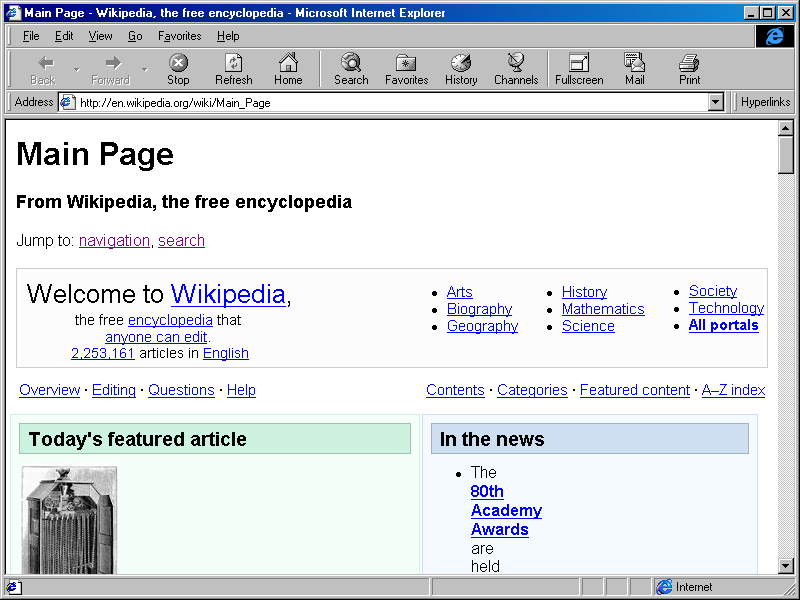Goodbye, Internet Explorer
Microsoft is officially moving away from tired old Internet Explorer, in hopes that fresh code, and a new name, can help it gain back users lost to Google’s Chrome and Mozilla’s Firefox.

As noted by The Verge, Microsoft’s chief marketing officer, Chris Capossela, said Monday at the Microsoft Convergence conference that the company is trying to figure out what to call the new browser it showed off in January, which has been code-named Project Spartan and will be included with Microsoft’s upcoming Windows 10 operating system.
“We’re now researching what the new brand, or the new name, for our browser should be in Windows 10,” Capossela was quoted as saying.
Spartan is meant to be more modern and interoperable than the technology underpinning Internet Explorer, and will let users do things like annotate Web pages and use Microsoft’s Cortana digital assistant to quickly find things online by speaking queries aloud.
Microsoft all but spelled out the change back in a blog post in January, following the announcement of Project Spartan’s inclusion in Windows 10. Jason Weber, group program manager for Internet Explorer, wrote that Internet Explorer would still be available on Windows 10 because “some enterprises have legacy web sites that use older technologies designed only for Internet Explorer,” implying a distinction between the two.
The changes both to the browser and the branding make a lot of sense. Internet Explorer, first released in the mid-1990s, dominated the browser market at its peak in the early 2000s, but it came to be associated with poor security and compatibility with other browsers and has since languished. Spartan’s success is critical if Microsoft is to remain relevant in the Web browser business—a market in which it used to dominate but now trails Google’s Chrome. According to data from StatCounter, in February, Chrome had 43.2 percent of the global browser market (including desktop, mobile, and other platforms), while Internet Explorer captured 13.1 percent and Firefox had 11.6 percent.
We’ll soon get a sense of how well Spartan—or whatever Microsoft decides to call it—will do: Windows 10 is slated for release later this year. Early versions of Windows 10 can be downloaded by members of Microsoft’s Windows Insider Program, and Spartan is expected to be added to a preview version soon.
Keep Reading
Most Popular
Large language models can do jaw-dropping things. But nobody knows exactly why.
And that's a problem. Figuring it out is one of the biggest scientific puzzles of our time and a crucial step towards controlling more powerful future models.
The problem with plug-in hybrids? Their drivers.
Plug-in hybrids are often sold as a transition to EVs, but new data from Europe shows we’re still underestimating the emissions they produce.
How scientists traced a mysterious covid case back to six toilets
When wastewater surveillance turns into a hunt for a single infected individual, the ethics get tricky.
Google DeepMind’s new generative model makes Super Mario–like games from scratch
Genie learns how to control games by watching hours and hours of video. It could help train next-gen robots too.
Stay connected
Get the latest updates from
MIT Technology Review
Discover special offers, top stories, upcoming events, and more.